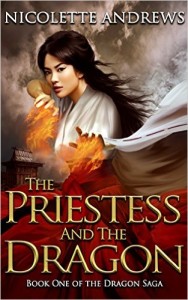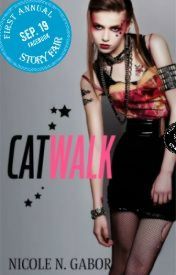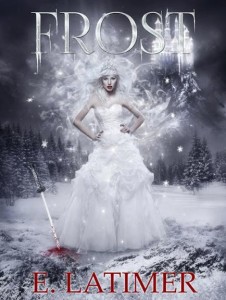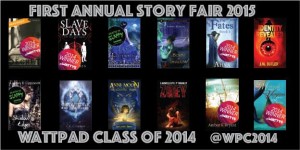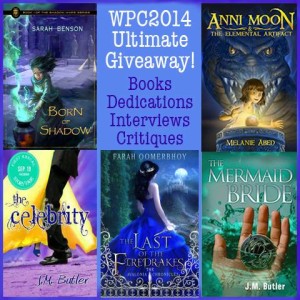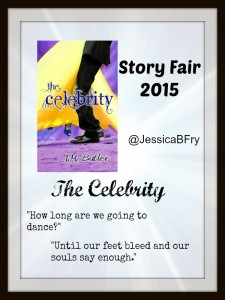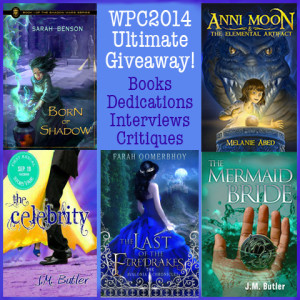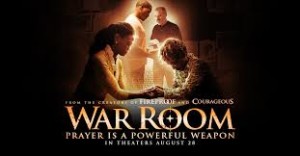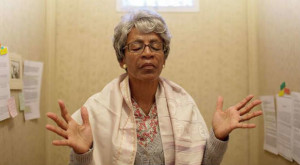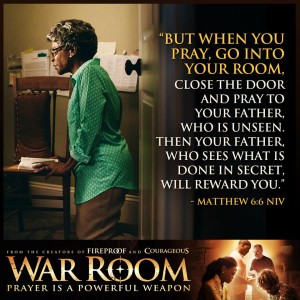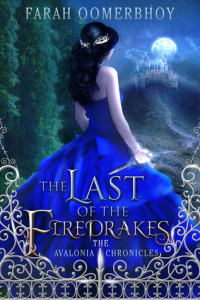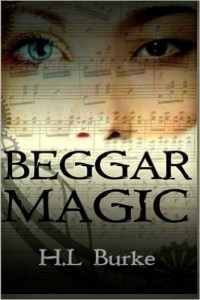A friend gave me a copy of For Such a Time, and she wanted to know my thoughts. It’s a difficult subject to wrap my head around. And doing a straight and simple review seemed to devolve too often into something more akin to a rant. So I decided to do something more positive and talk about the things authors can learn from this book while reviewing this.
A General Assessment of For Such a Time
First, in terms of my general assessment, no, this is not a good book. It is not a book I intend to read again, and it is not a book I recommend. The writing style is sufficient and typical for the Christian inspirational genre. It’s well crafted for a book of that genre. It also shows a desire to engage with a difficult subject matter, and, in fairness, it had potential. But having potential is not the same as realizing it.
If you really want to know about what life during the Holocaust is like, I recommend Night. And if you haven’t read The Hiding Place, I highly recommend it. Neither of these books are romanticized. They are brutal and often leave the reader feeling uncomfortable as they should. We have other genres for fun and whimsy as well as dark romances. In fact, using some of these other genres to explore concepts like redemption, bullying, and so forth can be advantageous because it removes the baggage that must necessarily come with historical fiction.
Disclaimers
I found this book very difficult to read. I made notes, but it is one of those books I find difficult not to block out. So I have done my best to make note of the key points. I hope that I have not just blocked out evidence that contradicts these points.
I cannot cover all of the issues in this book or analyze everything. There are probably some things I have missed that might seem quite relevant. I apologize in advance. I should also add that this is not generally my cup of tea. I don’t read a lot of WWII historical fiction, nor am I an expert on the subject though I have read a fair number of nonfiction books.
This book also represents my greatest fear in writing historical fiction: carelessly disregarding what actually happened to shoehorn in my own perspective and modern notions to tell an entertaining story while spitting on history.
Think About the Larger Context
One of the points in contention is whether a true conversion takes place for Hadassah. Some insist that she converted to Christianity. Some insist she did not. I assumed she did. There are a number of segments that suggest this despite there not being the explicit sinner’s prayer and repentance speech that used to be prominently featured in books like this. However, it also seems disingenuous to suggest that she did not. From the fond thoughts of a friend who consistently tried to convert her to her favorable comparisons and thoughts about Jesus, Hadassah does not display a mindset or worldview that remains consistent with a young Jewish woman. It’s far more in line with a modern evangelical woman. The miracles and favor likewise shift after her perceived acceptance of Christianity. I don’t want to go too far into this because, whether big or little, the greater problem is that this ignores one of the deepest problems: Hadassah ultimately winds up stripped of her Jewish identity, and it doesn’t seem all that important because she is with the ever so handsome commandant. The Nazis stripped the Jews of their humanity as well as their culture, thus making holding onto that culture and humanity even more important for those who survived.
While it’s true that the heroine struggles with her feelings, the struggle doesn’t line up with what a young woman in her position seems most likely to have struggled with. It’s much more angsty. It also glazes over so many issues. For instance, her being forced to eat pork is handled within the span of a couple paragraphs and has relatively little impact on the story. But this is a tremendous issue. She also turns regularly to the Bible, always opening it to just the right point. And she doesn’t just read the Old Testament, though that is where she begins. She also reads the New Testament, which is part of Christianity, not Judaism. It’s also an odd contradiction because Aric constantly insists he does not want to force her to do anything (i.e. he won’t rape her), but he forces her to do many things including serving as his secretary, typing up death lists, and eating pork.
In telling stories based off true events, it’s important to remember what is being said and to avoid, if possible, spitting on those who suffered. The cover, for instance, depicts actual women and children waiting on the platform for the train to Auschwitz. It wasn’t a reenactment. When you pick up that book, you are looking at real people who likely met their ends after horrific tortures and demeaning treatment that we can scarcely comprehend. It seems to be in incredible bad taste to profit off their images.
Don’t Forget Suspension of Disbelief
This story only works if you attempt to romanticize it to an extreme level. Yet the author never wanted to do that. She constantly reminds the reader of the foul stenches and the horrors of those in the camps. Hadassah is initially emaciated, tattooed with a number (which I believe was reserved only for those on their way to Auschwitz which she was not, but oh well, let’s up the horror), and shaved. Yet somehow Aric sees her and is stricken by her beauty. He fights through the firing squad at Dachau to sweep her up in his arms and carry her off, promising to nourish “his dove” and make her beautiful again. I would have believed that he felt great sympathy and pity for her (though why her and no one else is poorly explained at best), but not desire. Otherwise, what does that say about him? That is in the first couple chapters, and it illustrates one of the biggest issues. The story is almost impossible to believe despite it taking itself very seriously and believing that it is shedding light on a dark and tragic time.
Another similar issue that I will touch on more is that we are led to believe that Aric himself, despite being a member of the SS and the commandant of Theresienstadt, has not done anything terrible himself. Unless you count his looking the other way or following orders. In fact, he despises and resents the Gestapo and other members of the Nazi party. His rise to power within Hitler’s regime feels contrived and strange. He is an outsider, and, even at parties where other high ranking members of the SS attend, he makes comments to indicate his displeasure. The actual commandants of Theresienstadt were brutal men. While Theresienstadt was not a death camp like Auschwitz, many did die there. And while it was “better” than Auschwitz, “better” is still relative. Tremendous horrors occurred in this place such as a forced census count in which the prisoners were required to stand in freezing water for hours. Many died from that alone.
Despite the heavy use of sensory imagery, I had a very hard immersing myself in the world or believing that it was in any way a serious historical novel. It just didn’t add up. There were too many points where it was hard to suspend belief.
A Story About Redemption Is Significantly Less Potent if the Primary Argument is That The Protagonist is Misunderstood
Schindler’s List is a difficult film to watch, but one of the things that made it work was the protagonist’s gradual realization that he was viewing these people as sub human when they weren’t. The film took full ownership of the horrors that he committed. He did some pretty terrible things, and his original motives are tremendously selfish. Yet his transformation as the film continues shows a quasi redemption story. Even so it remains uncomfortable. The tone is dark. The horrors are realized. And the point is made.
One of my biggest issues in For Such a Time is that Aric is portrayed as misunderstood rather than evil. In fact, on multiple occasions, Hadassah muses that he must suffer much as she does and is similarly trapped. This might have worked to show Stockholm Syndrome or the other psychological issues that might have been at work. The human heart longs for love. But the story ignores the fact that Aric, to be in this position and to have this role and to have the power he does, would have had to do something, most likely evil somethings.
On a secondary note, the misunderstood man with the broad shoulders does not fit into the Esther parallels. This, like the “true love” that develops between them, is designed to make the story “more palatable.” Esther’s lot was a dangerous one. She likely still had encounters with Vashti, and, according to historians, as best we can tell, Vashti is believed to have potentially regained her position, meaning either Esther was cast aside or perhaps died. There doesn’t seem to be clear consensus on that. But for the modern reader, the powerful man who falls in love with the strong spirited woman who is desperate to save her people is far more enjoyable than the story of the powerful man who uses a strong spirited woman who is desperate to save her people. True love and affection provides a buffer. It allows for some protection. Plus it appeals to the romantic sensibilities that some hold dear and it makes it easier for the reader to envision herself in that place without it being “too horrible.” Xerxes himself committed his fair share of atrocities and was not known as a good or kind or even misunderstood man.
The other issue here is that ultimately it doesn’t seem to even be about redemption though that is a main point I’ve heard thrown about. None of the main characters really need it. Despite bending over backwards to show Aric as misunderstood, the author goes to great lengths to show that Nazis in general are the scum of the earth. They are porcine and disgusting. Their breath is always foul (by the way, halitosis is not an indicator of evil), and they are excessively rude. The vast majority seem to have an addiction to rape and so on. Only Aric stands alone. Thank goodness he’s handsome! Even if he does have a slight limp and a slightly crooked nose. He is a beacon of humanity and goodness among his Nazi brethren. Really…what does he need redemption from?
What troubles me in this is that nuance should be a core element within a redemption story. People can have many sides, and rampant contradictions may appear. This story would have been far more horrifying if it had actually dealt with the realities. The Nazis were people too. They weren’t soulless monsters, and that is part of the horror. That men and women who were capable of loving one another, demonstrating compassion for friends, participating in the arts, playing with their own children, and so on could possibly allow atrocities like the Holocaust happen. No, not just allow. Participate in. Even encourage. (And this was not unique to the Nazis. At other times in history, other groups of people have determined that another is inferior or subhuman and treated them with contempt, cruelty, and dismissal. In this case, the Holocaust brought about an undeniable and horrific example of what this looks like when allowed to continue to its conclusion.) Dehumanization works both ways. The Nazis dehumanized the Jews so they could more easily dispose of them. Many people dehumanize the Nazis so they can more easily pretend they would never commit the same atrocities.
So this story might have worked if Aric had been a true SS officer. Perhaps he eventually struggled with what he was doing as he started to wonder if they are human. Perhaps he realized that he was oppressing even this young woman whom he believed he has saved. His own discovery of the way that he oppressed even her would have been a great way to show what might have happened.
And bear in mind, powerful men who have done terrible things have at times fallen in love with good women who have loved their man and fought for their people/group. But that is not every story. And in cases when this was not so, it dilutes the potency of those cases where it is true and ignores the sacrifices and struggles those brave women had to make. Sanitizing history does not make people more heroic. It makes heroism more mundane because it strips them of their humanity and makes them seem more common. In the situation of Esther and an Esther parallel story, it actually strips away one of the biggest things that Esther lost: a husband who loved and cherished her. She was alone in a palace with a man who could at any time cast her aside and whom she might not see for weeks at a time. Imagine the loneliness. The strength of character it took for her to continue to faithfully look out for and defend her people in the ways she could. All the while dealing with the pettiness and cattiness that likely went on with Xerxes’ other wives. Esther was a prisoner. Not of love but of politics and lust. She was used for her body. She had lost much, and she risked everything else by appealing to Xerxes. This was not a love story.
Remember Your Audience
One of the challenges in writing historical fiction is that the author is telling of a time when sensibilities and perspectives are not the same. So one has to bear in mind both the story being told and the people listening to the story. A number of reviewers and readers have commented on how offensive the term “Jewess” is, and it is often used to describe Hadassah. Right along with her blonde hair and blue eyes.
The term might have been acceptable at one point, but the term now has significant baggage. Similar to many others. As it wasn’t necessary to the story, it could have easily been removed. What is lost by saying that she is Jewish? Little choices like this show an odd carelessness.
Consider the Actual Point Being Made
When writing from a character’s perspective, it goes without saying that the character may not agree with the author. In fact, there should be lots of disagreement. But when a character’s perspective is given and no one contradicts that perspective, it might seem that that is actually the perspective of the author and the point of the book.
In this case, Hadassah frequently muses about the suffering Aric goes through, in between thinking of him as the Jew Killer. But she over empathizes and eventually slides into putting her own feelings and struggles aside to deal with his.
Someone needed to grab this young woman by the shoulders and say, “No! You and he are not the same! He has not suffered as you have. He is discrediting your experience while validating his own! Don’t push your own feelings to the side. You matter too!” But this doesn’t happen. The disabled help who assist around the house love Aric as do the Jewish prisoners. They all side with him when push comes to shove. All of this suggests that Aric did indeed suffer as much as the concentration camp prisoners, living with a tortured conscience as he struggles to do what’s right.
This is beyond ridiculous. It’s dangerous to get into games of “I have suffered more than you,” but that doesn’t mean that some people don’t suffer more. More importantly, it’s horrific how all of Hadassah’s loss is set aside because of the commandant’s discomfort. I’m not entirely certain what the point being made was except that he had needs…The more uncomfortable point is that all of the suffering of the Jewish prisoners and other members of the concentration camp is somehow less important than the mental anguish of the one who oversaw it.
Remember That Context Can Change Situations
Another point of contention within the book has been that Aric rapes Hadassah while others insist that he does not. Again, this is a tense issue because, technically, Aric does not rape Hadassah in a strict physical sense. However, when other reviewers have used the term “rape,” they are referring to it contextually. Aric kisses her. He fondles her. He caresses her. He makes his sexual desire exceptionally clear. He micro manages her. In the beginning, he also tells her that if he does not have her loyalty, he can throw her back into the cesspool from which she came. She cannot leave him. She cannot leave the camp. She is forced to participate in other activities that she finds reprehensible. She ultimately marries and joins with Aric after he begins to change. So clearly, no rape here? Right.
Not exactly. Not to be too technical or legal, but there are different kinds of rape. And under some legal definitions, an individual can be stripped of her ability to consent or be in circumstances that make her consent meaningless. This could easily morph into a much larger discussion.
But the people who are saying that this story involves rape aren’t wrong. The power disconnect and Hadassah’s helplessness before Aric is not addressed sufficiently. And because of the cultural baggage and awareness of history, it becomes even more problematic.
Now I realize that this can be taken too far. That’s partially why the couple’s relationship, treatment, and other factors all go in to determining what happened. And even so, this story is iffy. This could have been handled better by actually addressing the issue. Instead, the story acts as if this is little more than a businessman interested in his secretary who can leave at any point and find another job and who has the necessary strength and capacity to do so.
As writers we have to remain aware of the situations in which we place our characters. Sometimes, such as in comedy, it may not receive as much attention because the focus is on the joke and people behave more absurdly. But in a serious novel such as this one, the awareness of the situation and what it may be saying to the modern reader is essential. It doesn’t mean conflict should be avoided. But it does mean the author should know what she’s getting into and address the relevant points.
Don’t Use Disabled or Ethnic People as Props
This book is far from the only story where I’ve witnessed this. In fact, it’s really quite common. The basic scenario is this: there is a group of individuals or several separate people whom society looks down upon. These people might be fat. They might be disabled. They might be clumsy. They might be from the wrong side of town. They might have the wrong social status or the wrong pasts. They might have the wrong color skin. They might not think like everyone else. But the protagonist always stands up for or comforts these people. Often these characters feel affection for the protagonist and rally to his aid when his hour of need arises because, you know, their lives revolve around the protagonist.
The problem arises when these people are just props. Jewish children are frequently props in this book. At Dachau, Aric is drawn to Hadassah when he sees her clinging to a five year old who is shot. Instead of saving the other children who are in line, he saves her because of her compassion for that now dead child (and please, don’t tell me she was the only one. That is insulting to all the parents and adults who desperately tried to save the little ones, and most of them were butchered for their troubles). These characters are not individuals in their own right. They are props to demonstrate the protagonists’ character traits such as Hadassah’s compassion and Aric’s so called tolerance. There was never really a sense that these characters were their own entities who had stories that just intersected with Aric and Hadassah.
Maybe You Need a Disclaimer
Historical fiction provides a number of challenges, particularly when dealing with more recent events or events charged with emotions and tragedy. The Holocaust is one of those times. It’s a particularly horrific page in world history that is shocking to contemplate, and authors should be cautious when dealing with raw and potentially offensive subject matter.
Let me make one thing clear to start with. This is not about not offending people. Good literature will often perturb some people. Good literature will make people talk. But this is not that. Nor is this about censorship. People should be allowed to write what they want, but other people are allowed to react and disagree or be offended. Also just because people are upset about something doesn’t make the work good or commendable in any way.
This is a book that in my opinion should not have been written as a true historical fiction. The book generally has a dark and serious tone. It often feels like two stories are jammed together (the romance and the historical), but it’s clear that it wants to be taken seriously. The author even provides footnotes of research though it seems that the research was far from sufficient given a number of errors.
This book would have been easier to take if it had been set up as an alternative history. Not a lot. But a little bit. See, one of the horrors of the Holocaust, in my opinion, is the fact that, until the end, there were no rescues. The fight on top of the train, the daring escape, and so forth in this book all are elements of fiction, and oddly make the book feel like it wants to be an action thriller at the end. A strange choice given the rest of the story. But it seems to me that historical fiction, while being free to change many things, should not change core elements. For instance, if you write a story about the Titanic, you may change a number of things such as inserting characters who were not there or creating subplots that did not occur. What you should not do is change the core events such as the sinking of the Titanic or the shutting off of the poorer passengers down below or other similar events. As horrifying as both those are, they speak to what made this event so memorable and tragic.
So if you’re going to write a historical novel where key events change or go against history, you need to make it clear that this is an alternative version. Many people regard historical fiction as being more accurate about history than other fiction. Obviously, if the Doctor shows up or Bill and Ted arrive or dinosaurs break in, the reader knows that a lot of it has been made up with historical facts being used to supplement the story. In a story like this, it all sounds and looks historical. It even seems plausible if you don’t think about it too much or know that much about history. So at the very least, the truth of the matter should have been more clearly made. I maintain that the length of time those concentration camps lasted is one of the many abominations that came from WWII.
Not Everyone Who Hates a Book is a Hater
Everybody knows that haters are gonna hate. People love saying that. But some people hate for a reason. There are many legitimate reasons to despise this book. And it’s not as easy as saying “oh, people don’t like characters converting to Christianity” or “readers just don’t like Christian stories.”
That may in part be true. But this book was nominated for a RITA, so it’s hard to claim that it is just being summarily rejected. However, the difficult part here is that certain individuals refuse to see this from any perspective but their own. And to the Christian inspirational readers who are insisting that there’s nothing wrong with this and it’s just prejudice against Christians, please, please, please stop! I say this as a fellow Christian who believes that conversions can happen from anyone and anywhere.
The mere act of a conversion is not the problem in this book. It is the conversion with the presentation and the other historical elements that all combine to create the problems and make it unpalatable and unreadable for many readers. It also ignores what so many Jews did suffer. Many did convert to Christianity to escape the Holocaust, and they were caught too. Also many were blond haired and blue eyed. That was not a guaranteed protection. It’s important to remember that just because something seems normal in one’s own life and like a positive thing (aka conversion to Christianity) doesn’t mean that it will come without baggage to others. And when other people were butchered for their beliefs and their cultural identity, that makes the conversion that much trickier.
If you read the book through a particular lens, it seems harmless and possibly sweet. But that lens requires ignoring a number of atrocities and pretending that the others who disagree are just haters. These sorts of stories can happen. Of course they can. But just because something can happen doesn’t justify it happening within a story. The characters and the plot and the events must work together in such a way that makes it believable.
Additionally, there’s room for various interpretations. One reader made the point that she had thought Hadassah was sympathetic to Christianity at the start of the book and so read the book as a continuation of her self discovery. I hadn’t thought of that. It didn’t strike me as that way, but I can see how that might have been the intent.
The world is a much bigger place now. And as authors, we have to bear in mind how things might be taken. We can’t always protect against every negative interpretation. Sometimes the purpose of the story and its overall message means that some people will be alienated or offended, and nothing can be done. But this book does not accomplish that. It does not tell of the power of Christ’s redemption in converting the most hardened SS officer into someone who cares about the poor and downtrodden. It does not really tell anything of value that could not have been told in another forum and with better taste with less offense and less baggage.
Stop Hammering in Your Point
This isn’t exclusive to Christian inspirational stories though they are the most frequent offenders, in my opinion. But the author starts every single chapter with a verse from Esther that corresponds to that section of the story. It became exceptionally hamfisted and frustrating, and, even if the story was such to keep me engaged all the way through, the verses out of context pulled me out of the story and said “hey, look at this, look at this! It’s an allegory! This means it’s especially important and look at how clever this is.”
Apologize if You Get It Wrong
People sometimes complain that our culture has become too apologetic. People say something, it’s taken out of context, and an apology follows. While I can certainly think of a few occasions when it seemed like overkill and exceptionally vindictive for people to demand blood, this doesn’t seem to be the case.
Historical fiction sometimes sits easier when it is clear that it is diverging from history, but writers must be cautious about doing so in a manner that doesn’t spit in the face of those who endured it.
When I went to Ms. Breslin’s website, all I found was her discussion of the awards this book has been nominated for. Nothing about the uproar or the disapproval or the frustration readers have felt. I recognize that this can be quite upsetting, but many of these people have raised legitimate concerns. A simple letter addressing her intentions and what she meant to do could go a long way in resolving some of these matters such as the use of “Jewess” and how seriously this book is meant to be taken. Perhaps something will come eventually.

